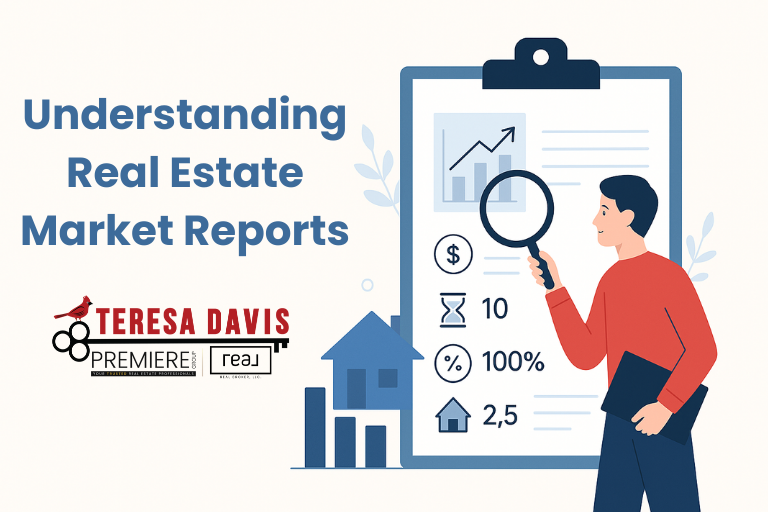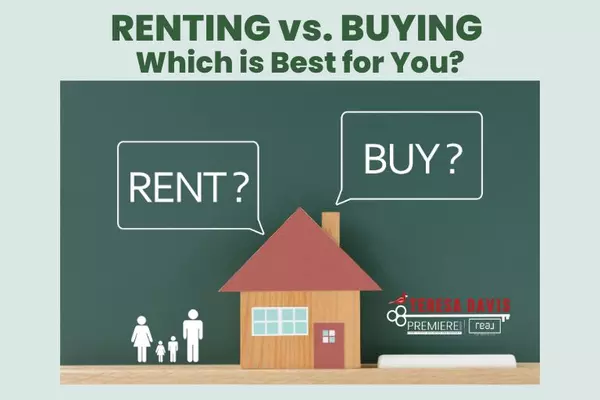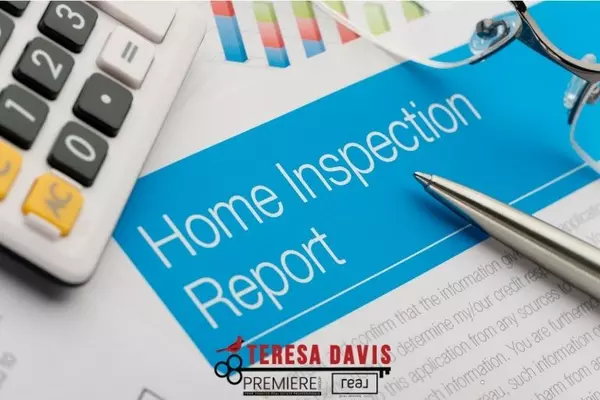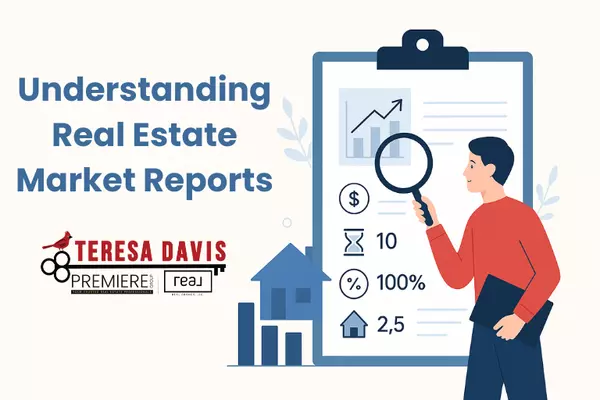Understanding Real Estate Market Reports: Why They Matter to You as a Homeowner or First-Time Homebuyer

Understanding Real Estate Market Reports: Why They Matter to You as a Homeowner or First-Time Homebuyer
Market reports aren’t just for agents or investors—they’re your roadmap. They show what’s happening right now in your local market so you can make confident decisions, whether you’re selling or buying.
Why Sellers Should Care
Planning to sell? Pricing correctly from day one is the difference between momentum and missed opportunities. Watching stats like median sold price, median days on market, and % of list price received helps you set a competitive list price, anticipate buyer demand, and choose a smart strategy (e.g., pre-listing tune-ups vs. going live quickly).
Why Buyers Should Care
As a buyer, market stats tell you how assertive to be. If homes are selling at or above asking price and going under contract fast, you’ll want your financing ready and your offer terms sharp. If homes linger, you may gain negotiation room on price, repairs, or closing costs.
Key Terms You’ll See in Market Reports
- Median Sold Price: The middle sale price when all sales are ordered from low to high. Unlike an average, it isn’t skewed by a few unusually high or low sales, so it’s a clearer snapshot of typical values.
- Median Days on Market (DOM): The typical number of days a home takes to go under contract. Fewer days = higher demand; more days = slower pace.
- % of List Price Received: Sale price divided by original (or last) list price. Over 100% suggests bidding pressure; under 100% may indicate room to negotiate.
- Month’s Supply of Homes (Inventory): How long it would take to sell the current active listings at the recent sales pace if no new homes were listed.
- Showings per Listing: Average number of buyer showings a property receives before going under contract—an on-the-ground indicator of demand and buyer activity.
What “Median” Really Means (and Why It’s Better Than Average)
“Median” is simply the middle number. In housing, a few luxury sales can pull an average price way up and a few distressed sales can pull it way down. The median resists those extremes, giving homeowners and first-time buyers a more reliable benchmark for typical values.
Why Month’s Supply Matters
Low Supply (≈ 0–3 months)
Strong seller leverage. Homes sell faster, often with multiple offers. Buyers should move quickly and be prepared for competitive terms.
Balanced Market (≈ 4–5 months)
Negotiating power is more even. Both pricing and days on market tend to normalize.
High Supply (≈ 6+ months)
Buyer leverage increases. More options, longer listing times, and potential for concessions.
Is It a Buyer’s or Seller’s Market?
- Seller’s Market: Low month’s supply (often ≤ 3), higher % of list price received (near or above 100%), and low median DOM.
- Buyer’s Market: Higher month’s supply (often ≥ 6), lower % of list price received, and higher median DOM.
Keep in mind: these are rules of thumb. Conditions vary by price point, neighborhood, and property type.
How Many Showings Before a Home Goes Under Contract?
“Showings per listing” helps set expectations. When demand is hot, homes can go under contract after relatively few showings. When demand cools, it typically takes more showings and more time. Tracking this metric alongside DOM and % of list price received offers a fuller picture of how the market is behaving right now.
Want the Numbers for Your Area?
I post fresh market stats every month on my social channels—and I can tailor a quick snapshot for your city, county, or neighborhood. If there’s a specific area you want to watch, tell me and I’ll send you the latest report.
Follow for monthly updates:
Categories
Recent Posts











Teresa Davis
REALTOR® and Licensed Loan Originator | License ID: 308937 / NMLS# 2597433

